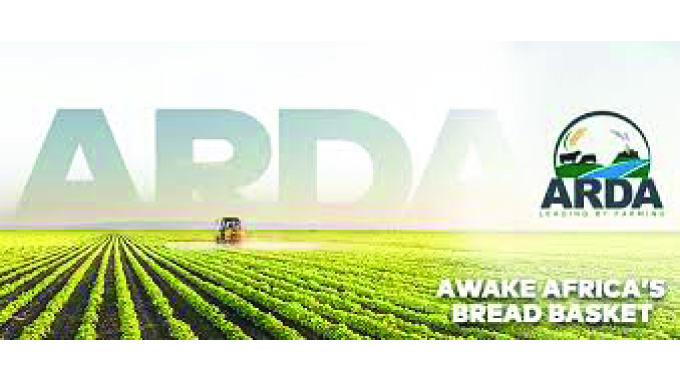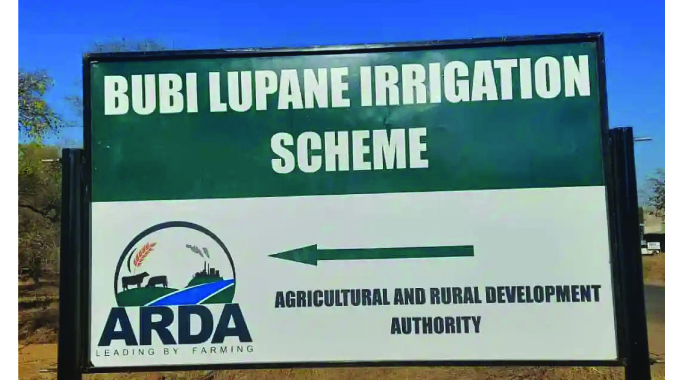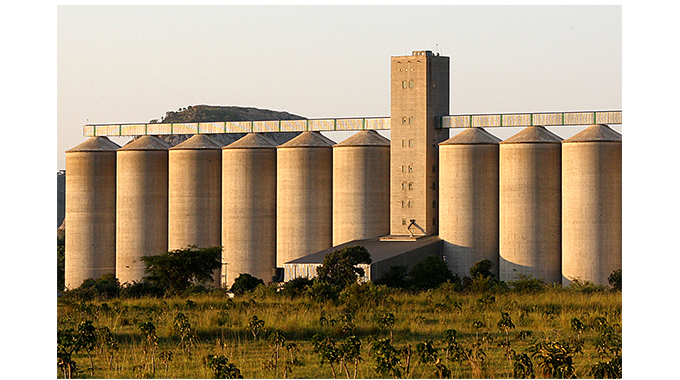COMMENT: Private sector should assist farmers to fully utilise land

Government continues to deliver on its promise to enhance the country’s food security by establishing new irrigation schemes and rehabilitating old ones.
The climate change has rendered rain-fed crop production unreliable hence the decision by Government to expand land under irrigation across the country.
The target is to put at least 350 000 hectares of land under irrigation by 2025.

Bubi-Lupane Irrigation Scheme
Among the big irrigation schemes that have benefitted from this programme is the Mtshabezi Irrigation Scheme in Gwanda, Matabeleland South province and in Matabeleland North province.
Last year Government allocated $177 million towards the establishment of the Mtshabezi Irrigation Scheme which was first mooted in 1935 and has been a project on paper since then.
A total of 157 farmers are beneficiaries of the new scheme and are already preparing to plant their first crop which is the winter wheat.
The scheme whose beneficiaries are drawn from six villages, is set to change the livelihoods of the 157 families and their neighbours.
Government apart from providing funding for infrastructural development, has also seconded a manager from the Agricultural and Rural Development Authority (Arda) to assist the farmers.

Grain Marketing Board (GMB)
The manager’s work is being complemented by Agritex officers as Government wants to ensure that the farmers do not just produce for their own consumption but also surplus to sell to the Grain Marketing Board (GMB).
Government has also seconded a manager from Arda to Bubi-Lupane Irrigation Scheme as it wants the two irrigation schemes to adopt an integrated business model which will be replicated in all the provinces.
Bubi-Lupane Irrigation Scheme farmers had a bumper harvest of wheat last year and the push is for the Mtshabezi Irrigation Scheme farmers to also do the same.
Zimbabwe has over the years been importing wheat to cover its deficit and the thrust now is to ensure the country produces enough to meet its demand.
Farmers at big irrigation schemes are therefore expected to produce the bulk of the wheat and save the country the much needed foreign currency.
The advantage of cultivating crops under irrigation is that farmers produce crops throughout the year as opposed to just waiting for the rainy season.
Farmers are the major sources of raw materials for industry and we want at this juncture to implore the private sector to complement Government efforts to boost production of these raw materials.
Companies that use crops as raw materials can assist with resources to fund the establishment of new irrigation schemes or rehabilitation of old ones.
Some companies can also construct dams to enable farmers to put more land under irrigation.
The private sector can also capacitate farmers by providing equipment such as centre pivots to ensure farmers fully utilise land.
We want to urge beneficiaries of irrigation schemes to work hard and transform themselves from subsistence farming to commercial farming.
What is pleasing is that some of the farmers at the irrigation schemes are already enjoying the fruits of hard work.











Comments